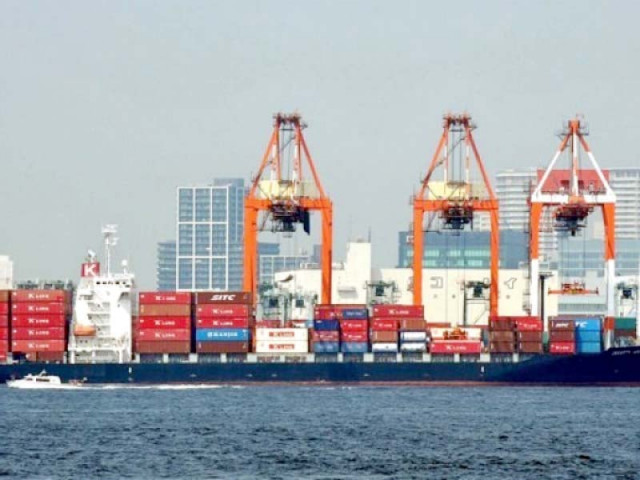Plan to exchange trade data with China misses second deadline
Officials believe development is Beijing’s response to Pakistan postponing signing of FTA

Pakistani record shows that the imports from China are around $10 billion a year but Chinese publications put the figure at $14 billion a year. PHOTO: FILE
Pakistani authorities believe that by delaying the operationalisation of the Electronic Data Exchange, Beijing is retaliating against Islamabad’s decision to postpone the signing of the FTA-II.
The delay in operationalisation of the electronic data exchange (EDE) has undermined the customs authorities’ plan to stop the understatement of the value of imported goods. The Customs authorities think that imports from China are undervalued by at least $4 billion, which is adversely affecting its revenues.
China rejects Modi’s remarks, urges world to support Pakistan in tackling terror
Pakistani record shows that the imports from China are around $10 billion a year but Chinese publications put the figure at $14 billion a year. At times, Chinese exporters do overstate their goods to get higher rebates that Chinese governments gives to promote the exports.
The original deadline to make the new system operational was April 1, which was rescheduled to April 30. Member customs of the Federal Board of Revenue (FBR) informed the Senate Standing Committee on Finance that the electronic data exchange could not start on April 30.
To address under-invoicing of imports, Pakistan and China reached an agreement to initiate digital exchange of trade data.
In March, Pakistan put off the signing of a revised free trade agreement with China at the last moment due to strong reservations expressed by the Textile Division and the FBR on the final offer list shared by Beijing. Both countries have so far held 10 rounds of negotiations.
The stakeholders put up fierce resistance after the commerce ministry revealed in an internal meeting that Pakistan would offer zero duties on 75% of imported tariff lines. Under the first phase of the FTA, Pakistan gave duty concessions on 35% of tariff lines, which led to a huge influx of Chinese goods and many local industries could not survive.
Pakistan has made the required changes to give legal cover to the information that it will receive from China and use for valuation of goods. Any information or data obtained may be utilised for the purpose of assessment including valuation, according to an amendment proposed in the Section 25AA of the Custom Act of 1969. The amendment is part of the Finance Bill 2018, which the National Assembly is expected to approve next week.
The amendment has been introduced to use the EDE information for the purpose of valuation of goods and avoiding any legal challenges, member Customs Zahid Khokhar briefed the Senate Standing committee on Finance this week.
There were also issues about the modalities of the electronic data exchange. The sources said that Pakistan wanted that China should share the information about all the imports. However, China agreed to give access to the data that pertained to goods being imported under the FTA.
Only 60% of all the imports from China are currently coming under the FTA arrangement, according to an official of the Commerce Ministry. The spokesman of the Commerce Ministry Mohammad Ashraf also said that the Electronic Data Exchange will cover only FTA goods. He confirmed that the agreed date for sharing the data was April 30.
The Chinese authorities said that the coverage to all the imports would require changes in its domestic laws, which was a time-consuming exercise.
Initially, the electronic data exchange was in the domain of the FBR Customs but subsequently it was handed over to the Ministry of Commerce.
In addition to under-invoicing of goods from China, smuggling is another challenge for the authorities. Pakistan is losing a staggering $2.63 billion worth of revenue a year, due to smuggling of just 11 goods that are making their way through porous borders and, more alarmingly, through high sea and containerised cargo with full support of the state machinery, reveals a highly confidential official report of the FBR.
The study took into account the impact of smuggling high-speed diesel, vehicles, tyres, tea, auto parts, mobile phones, garments, cigarettes, plastic, television sets and steel sheets, on revenues, industrial production, investment and employment. Out of $2.63 billion, the country sustained a loss of $1.1 billion due to smuggling of mobile phones. The FBR commissioned the study titled, ‘Ascertain the Market Demand of Goods Prone to Smuggling -Establishing the Volume of Smuggling’ but later on termed it ‘strictly confidential’.
Published in The Express Tribune, May 6th, 2018.
Like Business on Facebook, follow @TribuneBiz on Twitter to stay informed and join in the conversation.


















COMMENTS
Comments are moderated and generally will be posted if they are on-topic and not abusive.
For more information, please see our Comments FAQ